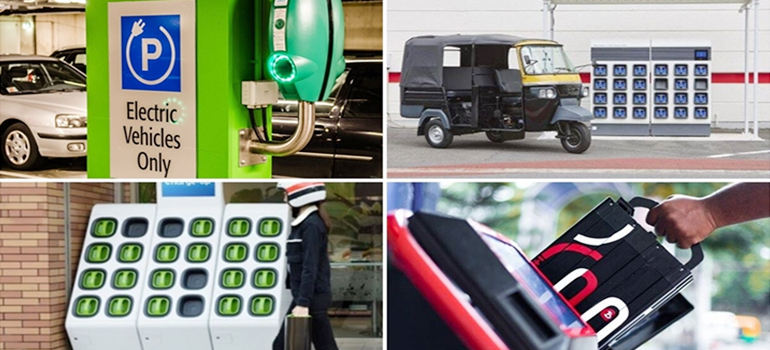
While we have come a long way in understanding battery technology, electric vehicle (EV) companies need to better anticipate the environment in which their EVs will be operated, and test these in a real-world scenario instead of accelerated lab testing, says Aravind Kumar Chandiran, assistant professor, Department of Chemical Engineering, IIT Madras. In an interview with FE’s Vikram Chaudhary, he adds that most fires can be avoided if preventive measures are taken. Excerpts:
Is India’s relatively hot climate not suited for batteries in electric vehicles (EVs) running on roads?
When the world started with internal combustion engines (ICE) decades ago, there were a lot of vehicle fires, and then carmakers eventually understood how to solve this issue.EVs are going through the same phase now. Batteries are very good in general; it’s more about how we program these so that they operate in a safe manner. In the past, you would have heard of laptops catching fire and phones exploding, but it doesn’t happen nowadays, because companies understood quite well how batteries operate inside devices.
Does this imply we are yet in the process of understanding how batteries operate inside EVs?
Not really, we’ve come a long way in understanding battery technology. But perhaps EV companies need to better anticipate the environment in which their vehicles will be operated, and the use and abuse their EVs will face.
How much is the person who is operating the EV responsible for fires?
I won’t like to comment on this, but please understand that if you use a laptop keeping it on a mattress with poor ventilation, it will eventually turn hot. It may or may not catch fire, but it will turn very hot.Most fires, in general, can be avoided if preventive measures are taken.
And what are these measures?
To begin with, one should not overcharge or deep discharge a battery, i.e. keep it in a healthy percentage share as much as possible.
Do you think the adoption from ICE to EVs has been so fast that we have not been able to test EVs in real-world scenario?
It could be a possibility, but this transition is needed, considering the climate goals we have to meet.
Are electric four-wheelers less susceptible to fires than electric two-wheelers?
I would not like to generalise, but they may have some advantages; for example, in an electric car battery pack, the coolant is liquid, which is better at dissipating heat than air cooling (that’s usually used in electric two-wheelers).
What needs to be done so that battery fires in two-wheelers don’t happen at all?
Batteries need to be tested more under the real-world scenario. While companies do accelerated testing, there could be a gap between accelerated testing and real-world scenario.
Could fires also happen because of a rogue cell inside a battery pack? For example, while current is going uniformly to the entire battery pack, one cell that has lost its charging ability gets excessively hot…
Theoretically that is possible, but battery management systems are designed to overcome such challenges. These systems are able to detect any cell failure, and even bypass electricity from dead cells to healthy cells.
Original News Link
https://www.financialexpress.com/express-mobility/components/evs-on-fire-batteries-need-to-be-tested-in-real-world-scenario-aravind-kumar-chandiran-iit-madras/2480649/